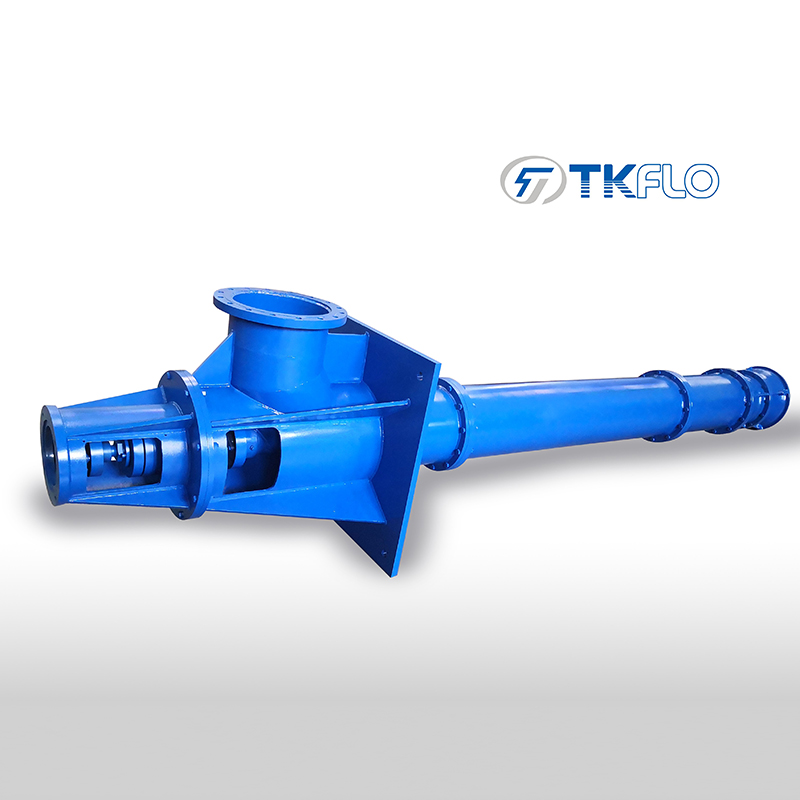What Is a Vertical Pump?
A vertical pump is designed to operate in a vertical orientation, allowing it to efficiently move fluids from lower to higher elevations. This design is particularly advantageous in applications where space is limited, as vertical pumps can be installed in tight areas without requiring extensive horizontal piping.
Vertical pumps typically consist of a motor mounted above the pump casing, which drives an impeller that creates the necessary pressure to lift the fluid. They are commonly used in various industries, including water supply, irrigation, and wastewater management, due to their ability to handle large volumes of liquid and their effectiveness in deep well applications.
Diesel engine Vertical Turbine multistage centrifugal inline shaft water Drainage Pump This kind of vertical drainage pump is mainly used for pumping no corrosion, temperature less than 60 °C, suspended solids (not including fiber, the grits) less than 150 mg/L content of the sewage or waste water. VTP type vertical drainage pump is in VTP type vertical water pumps, and on the basis of the increase and the collar, set the tube oil lubrication is water. Can smoke temperature below 60 °C, send to contain a certain solid grain (such as scrap iron and fine sand, coal, etc.) of sewage or waste water.

Difference Between Vertical And Horizontal Pumps
The primary difference between vertical and horizontal pumps lies in their orientation and design, which significantly affects their application and installation.
Vertical pumps are designed to operate in a vertical position, with the motor mounted above the pump casing. This configuration allows for a more compact design, making vertical pumps ideal for applications with limited space, such as in basements or tight industrial settings. They are often used for deep well applications and can handle high flow rates efficiently.
In contrast, horizontal pumps are oriented horizontally, with the motor and pump casing aligned parallel to the ground. This design is typically easier to maintain and allows for straightforward installation, making horizontal pumps suitable for a wide range of applications, including water transfer and industrial processes. Additionally, horizontal pumps generally have a larger footprint and may require more space for installation.
Vertical Pump Motor Types
Vertical pump is a kind of mechanical equipment used for conveying fluid medium, and the shaft is an important part of Vertical pump motor.
Hollow shaft and solid shaft are two common shaft materials for Vertical pump motor. A hollow shaft is an axis with an empty interior, while a solid shaft is an axis with no vacancy inside the shaft.
Difference Between Solid Shaft And Hollow Shaft
1. Weight and inertia
Hollow shafts are light in weight and have low inertia, which can reduce shaft vibration and noise when rotating at high speeds. Solid shafts are heavy in weight and have high relative inertia, which can easily cause shaft vibration and noise when rotating.
2. Strength and stability
Solid shafts have no internal gaps, so they are stronger and more stable, and can withstand greater tensile forces and torques. Hollow shafts are hollow inside, so they are less strong and are more likely to deform and break due to overheating and expansion of the internal air.
Is a Hollow Shaft Better Than a Solid Shaft?
Whether a hollow shaft is better than a solid shaft depends on the specific application and the criteria being considered. Here are some factors to consider when comparing hollow and solid shafts:
Advantages of Hollow Shafts:
Weight Reduction: Hollow shafts are generally lighter than solid shafts of the same outer diameter, which can be beneficial in applications where weight is a critical factor, such as in aerospace or automotive engineering.
Stiffness and Strength: Hollow shafts can provide similar or even greater torsional stiffness and strength compared to solid shafts, especially when designed with an appropriate wall thickness. This can lead to better performance in certain applications.
Material Efficiency: Hollow shafts can use material more efficiently, as they can achieve the same strength-to-weight ratio with less material.
Space for Components: The hollow center can be used to route cables, fluids, or other components, which can be advantageous in certain designs.
Disadvantages of Hollow Shafts:
Manufacturing Complexity: Hollow shafts can be more complex to manufacture than solid shafts, which may increase production costs and time.
Buckling: In applications where the shaft is subjected to compressive loads, hollow shafts may be more susceptible to buckling compared to solid shafts.
Fatigue Resistance: Depending on the design and loading conditions, solid shafts may have better fatigue resistance in some scenarios.
Advantages of Solid Shafts:
Simplicity: Solid shafts are generally simpler to manufacture and may be more readily available.
Higher Resistance to Buckling: Solid shafts can be more resistant to buckling under compressive loads.
Fatigue Performance: In some cases, solid shafts may perform better under cyclic loading conditions.
Disadvantages of Solid Shafts:
Weight: Solid shafts are heavier, which can be a disadvantage in weight-sensitive applications.
Material Use: Solid shafts may use more material than necessary for certain applications, leading to inefficiencies.
The choice between a hollow and solid shaft pump motor should be based on the specific requirements of the application, including load conditions, weight constraints, manufacturing capabilities, and cost considerations. In many cases, engineering analysis and design optimization will help determine the best option for a given situation.
Media Contact
Company Name: Shanghai Tongke Flow Technology Co., Ltd
Email: Send Email
Country: China
Website: https://www.tkflopumps.com/
